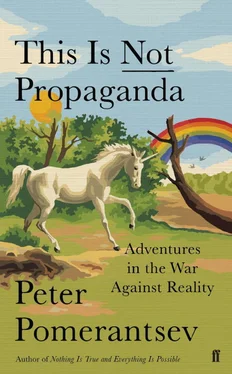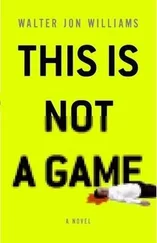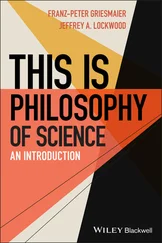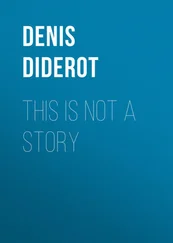All the while Serbia stagnates. At night, wrapped in the shawl of darkness, Belgrade emerges to play at glamour. Tall women in tight dresses and even taller men prowl low-lit bars and rows of restaurants at the base of grand squares with ambitious columns stretching towards the moon. Everywhere there’s music: from the Gypsies on the street; from the boats-turned-clubs along the river. Only in the morning does the music fade and the light return, and you can see that the tops of the columns, now visible, are crumbling; that the buildings above the low line of restaurants are falling apart; that this city which used to rule south-eastern Europe feels like a haughty cliff slowly collapsing into the sea.
There are protests all the time: against corrupt construction projects; against suspicious election outcomes. But they can never quite connect and build up into a coherent story like they could in Otpor!’s day. If Vučić has a finger in all the alternatives, which one are protesters going to feed off? Pro-European? Vučić has Brussels in his pocket. Pro-free market? Vučić has incentivised business to stick with him. Anti-business? Perhaps, but that can end up slipping into resentful nationalism – which Vučić is fine with too.
Meanwhile, the pro-Vučić media dismiss protesters as paid stooges of foreign forces. This had been the case during Milošević’s time too. The difference was that Milošević believed his own tall tales. During his many wars Milošević’s media claimed that Otpor! were ‘well-paid seduced students’ run by the CIA. After the revolution, Srdja found that Milošević had sent secret service teams to Washington DC to look for Otpor!’s headquarters, when all the time it had been based in Srdja’s parents’ living room. Vučić uses conspiracies much more coolly, flirting with the West while loyal newspapers push stories about how ‘Serbia is surrounded by the CIA’ or how MI6 is plotting to murder Vučić. Conspiracy is piled upon conspiracy, a ‘hidden hand’ behind everything.
Conspiracy theories have long been used to maintain power: the Soviet leadership saw capitalist and counter-revolutionary conspiracies everywhere; the Nazis, Jewish ones. But those conspiracies were ultimately there to buttress an ideology, whether class warfare for Communists or race for Nazis. With today’s regimes, which struggle to formulate a single ideology – indeed, which can’t if they want to maintain power by sending different messages to different people – the idea that one lives in a world full of conspiracies becomes the world view itself. Conspiracy does not support the ideology; it replaces it. In Russia this is captured in the catchphrase of the country’s most important current affairs presenter: ‘A coincidence? I don’t think so!’ says Dmitry Kiselev as he twirls between tall tales that dip into history, literature, oil prices and colour revolutions, which all return to the theme of how the world has it in for Russia.
And as a world view it grants those who subscribe to it certain pleasures: if all the world is a conspiracy, then your own failures are no longer all your fault. The fact that you achieved less than you hoped for, that your life is a mess – it’s all the fault of the conspiracy.
More importantly, conspiracy is a way to maintain control. In a world where even the most authoritarian regimes struggle to impose censorship, one has to surround audiences with so much cynicism about anybody’s motives, persuade them that behind every seemingly benign motivation is a nefarious, if impossible-to-prove, plot, that they lose faith in the possibility of an alternative, a tactic a renowned Russian media analyst called Vasily Gatov calls ‘white jamming’.
And the end effect of this endless pile-up of conspiracies is that you, the little guy, can never change anything. For if you are living in a world where shadowy forces control everything, then what possible chance do you have of turning it around? In this murk it becomes best to rely on a strong hand to guide you.
‘Trump is our last chance to save America,’ is the message of his media hounds. Only Putin can ‘raise Russia from its knees’. ‘The problem we are facing today is less oppression, more lack of identity, apathy, division, no trust,’ sighs Srdja. ‘There are more tools to change things than before, but there’s less will to do so.’
Permanent Revolution
I saw for myself how hard it was becoming to use the previous logic of protest when I had the privilege of attending one of Srdja’s workshops in Mexico, where activists, journalists, academics and political strategists gathered (in a bland conference room in a chain hotel) to discuss how one could plan an anti-corruption movement.
Mexico had its great ‘democratisation’ moment at the same time as Belgrade: in 2000 seventy years of single-party rule by the Institutional Revolutionary Party (PRI) had ended and the country had become ‘democratic’. Now the problem wasn’t dictatorship – the country had real elections – but every new regime was just as corrupt, just as in league with the narco barons as the last, and with a media controlled by oligarchs who worked closely with the government.
Some of those at the workshop, especially those jaded by decades of working in Mexican politics, had little faith that anything could change. Mexicans had a hundred years of disappointment in revolutionary change. In the nineteenth century Mexico had fought a war of independence from Spain, only to be subjugated by its own dictators. At the start of the twentieth century it had been a hotbed of socialist utopian dreams, the country’s fantasies projected onto the walls of Mexico City in mind-bending murals of a new society by revolutionary artists, but the result was seventy years of stagnation under the PRI. The only thing that would appeal now, the more cynical argued, was a strongman leader, even tougher than the gangsters, who would promise to clean everything up in the name of ‘the people’.
When I slipped out of Srdja’s workshop to meet those struggling to create protest movements in Mexico, I began to see how his ideas were being played out in a new, digital dimension.
*
When I first meet Alberto Escorcia he looks too tired to even be frightened any more. Someone’s been ringing his doorbell, then running away again so he can’t sleep at night, shining acidgreen lasers into his bedroom, sending online death threats with his name spelt out in bullets – thousands of death threats every day so that his phone vibrates with alerts 24/7, having turned into some sort of psychological torture implement.
But there’s no way Alberto can go offline. It’s his livelihood. More than that, it’s sort of his religion. ‘I see the Internet in metaphysical terms,’ he tells me, ‘a war between love and fear. Which I can calculate through the algorithms.’ There’s something a little other-worldly about Alberto. He can spend months manually analysing linguistic patterns in thousands of social media posts in order to see connections. The sort of things others get machines to do he does himself.
But somehow, talking about the divinity of data doesn’t seem such an unusual concept when you are in Mexico City. This is a city where religious drama is interwoven with everything, where the cocktail of mountain air and exhaust fumes makes the thin light shimmer and refract as if through stained glass, and where every year millions of pilgrims climb past rows of roses and limbless beggars to rise above the city and pray in the massive skirts of the Basilica of Our Lady of Guadalupe. There, the icons of Jesus are decorated with real hair so they seem at first glance to be sprouting, and the priests command vast congregations not to follow the ever more popular cult of Our Lady of Holy Death, the Lady of Shadows, Santa Muerte, the patron saint of the narcos, who carries a scythe and a globe at her great festival on the Day of the Dead, when the whole city dresses up in skeleton masks.
Читать дальше












